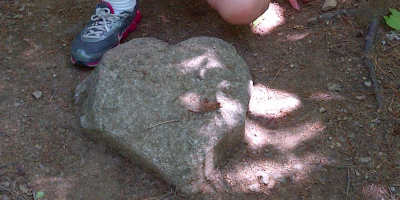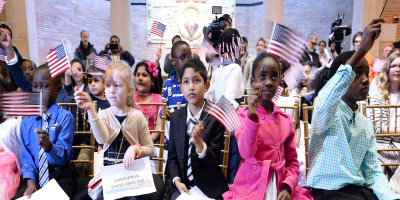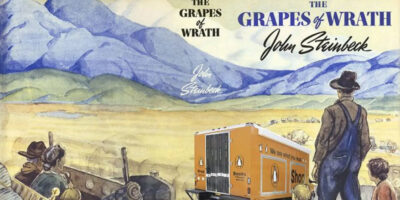Today is the Winter Solstice.
Depending on your view of things that means it’s either the shortest day or the longest night of the year.
The reality, of course, is that it is both.
And so it goes for other kinds of reality, too.
We are already seeing the usual roundup of end-of-the-year lists, commemorating or lamenting all that has happened over the past twelve months.
Not surprisingly, many of them are declaring 2016 the worst year ever, citing the Zika virus, terrorist attacks all around the world, police shootings, refugee crises, global warming (or not), the shrinking middle class, the loss of Prince, Mohammed Ali, and David Bowie, and of course, what seemed to most of us to be the most acrimonious national election in our lifetimes, with a surprise ending that has much of the country, and the world, wondering just what comes next.
Closer to home, despite a faster growing economy here in the Bay State, budgets for important services like healthcare, public safety and security, and education continue to shrink; and even as a college degree becomes more and more necessary for a meaningful career, the cost of higher education seems to be putting it more and more out of reach for many.
A few weeks ago, in his final show of the season, comedian and cable talk show host John Oliver had had enough, so he cursed and blew up a giant, garishly lit sign of the numbers “2 0 1 6” while a choir belted out a rousing rendition of Beethoven’s “Ode to Joy.”
Indeed, it’s not hard to look back on this year, or any year really, and find plenty to regret, mourn, and seethe about.
And, as bad as it may sometimes seem, it’s also not hard to look back and find plenty to celebrate, uplift, and sooth.
For example:
With the announcement of a peace treaty in the 52-year war in Columbia this August, there are now no armed conflicts anywhere in the Western Hemisphere. In fact, the few wars still being fought on the entire globe are concentrated in an area between West Africa and the Middle East, and five out of six people on the planet live in regions free of open warfare.
Despite perceptions and occasional year-to-year blips in big cities, overall crime and violence in the United States has been on a steady and significant decline since the early 1990’s.
After years of stagnation, real wages in the U.S. grew more than 5% in 2015-16, the largest single year increase since 1967.
For the third year in a row, the average cost of college tuition in America increased less than 3% and for the fifth year in a row student borrowing for college expenses declined.
And while the venom and vitriol of the election just passed is still very fresh in our minds, believe it or not the worst election experience ever may have been way back in 1876, when Rutherford B. Hays faced off against Samuel J. Tilden. Each side brutally assaulted the other, Republicans and Democrats alike were found guilty of considerable voter fraud and suppression, and despite Tilden receiving 250,000 more popular votes, Hays was named president by a special investigatory committee—four long months after the election, in March of 1877.
So today, on Winter Solstice, and with only a week or so remaining in 2016, should you be optimistic or pessimistic about the state of the world and our future?
Well, you get to choose, but consider this:
Many studies have shown that a positive outlook is the most important predictor of resilience. Optimists bounce back faster.
For athletes (and others) focusing on strengths and what you do well leads to faster improvement than hammering away on mistakes.
Businesses and other organizations with cultures that are more positive and appreciative are also more successful and lasting.
How you view and describe the world, or your particular corner of it, really does go a long way toward creating it, for yourself and those around you.
And if you think your particular circumstances, or even the circumstances of the entire country or world right now are simply too dire for silver linings, please think again.
In 1946, Viktor Frankl published Man’s Search for Meaning, a chronicle of his experience as a concentration camp inmate at Auschwitz during the Second World War, and introduction to what he called “logotherapy,” the idea that finding meaning in life is the most powerful and motivating force driving human behavior.
Despite the horrors of the concentration camp and the loss of every family member and friend he had ever known, Frankl discovered that life never ceases to have meaning, even in suffering and death. In fact, he determined, “love is the highest goal to which man can aspire,” and even a man who seemingly has nothing left in the world may still experience bliss, and hope for the future, simply contemplating what he loves.
None of this is to suggest that problems don’t exist, that genuine evil or misdeeds should not be recognized and fought against, or that 2016, on balance, may not have seemed worse than other years we may have forgotten.
But relentless negativity is draining, and people, organizations, and entire nations move in the direction of their vision.
In the days that remain to us this year, my hope is that we find the resilience, the positivity, and the appreciation of the many good things around us to find our meaning, and to focus our vision, on even better days ahead.
For several years I was involved with Optimist International, a worldwide volunteer organization that serves children and communities, and promotes optimism as a way of life.
I was the president of the Auburn Hills, Michigan chapter of Optimist International for a while. Each Thursday morning at 7:30 a.m. we would meet at our local Boys and Girls Club, say the Pledge of Allegiance, have breakfast, listen to a speaker, and plan our activities for the week.
We ended each meeting at 8:30 by reciting the “Optimist Creed,” originally published by Christian Larson in 1912, and no less aspirational and hopeful more than a century later.
On this Winter Solstice, at the end of this particular year, it is what I am promising myself—and what I hope for you, and all of us, too.
The Optimist Creed
Promise Yourself
To be so strong that nothing can disturb your peace of mind.
To talk health, happiness and prosperity to every person you meet.
To make all your friends feel that there is something in them.
To look at the sunny side of everything and make your optimism come true.
To think only of the best, to work only for the best, and to expect only the best.
To be just as enthusiastic about the success of others as you are about your own.
To forget the mistakes of the past and press on to the greater achievements of the future.
To wear a cheerful countenance at all times and give every living creature you meet a smile.
To give so much time to the improvement of yourself that you have no time to criticize others.
To be too large for worry, too noble for anger, too strong for fear, and too happy to permit the presence of trouble.






